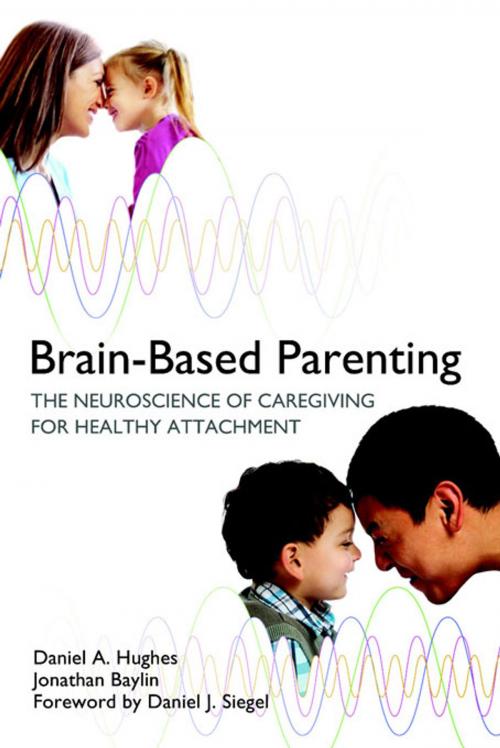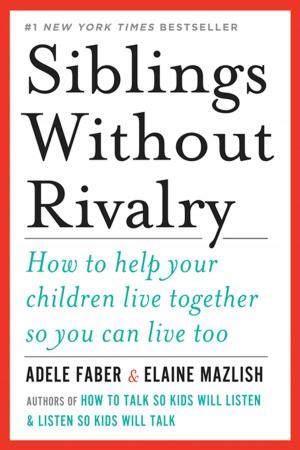Brain-Based Parenting: The Neuroscience of Caregiving for Healthy Attachment (Norton Series on Interpersonal Neurobiology)
Nonfiction, Family & Relationships, Parenting| Author: | Daniel A. Hughes, Jonathan Baylin | ISBN: | 9780393707687 |
| Publisher: | W. W. Norton & Company | Publication: | April 23, 2012 |
| Imprint: | W. W. Norton & Company | Language: | English |
| Author: | Daniel A. Hughes, Jonathan Baylin |
| ISBN: | 9780393707687 |
| Publisher: | W. W. Norton & Company |
| Publication: | April 23, 2012 |
| Imprint: | W. W. Norton & Company |
| Language: | English |
An attachment specialist and a clinical psychologist with neurobiology expertise team up to explore the brain science behind parenting.
In this groundbreaking exploration of the brain mechanisms behind healthy caregiving, attachment specialist Daniel A. Hughes and veteran clinical psychologist Jonathan Baylin guide readers through the intricate web of neuronal processes, hormones, and chemicals that drive—and sometimes thwart—our caregiving impulses, uncovering the mysteries of the parental brain.
The biggest challenge to parents, Hughes and Baylin explain, is learning how to regulate emotions that arise—feeling them deeply and honestly while staying grounded and aware enough to preserve the parent–child relationship. Stress, which can lead to “blocked” or dysfunctional care, can impede our brain’s inherent caregiving processes and negatively impact our ability to do this. While the parent–child relationship can generate deep empathy and the intense motivation to care for our children, it can also trigger self-defensive feelings rooted in our early attachment relationships, and give rise to “unparental” impulses.
Learning to be a “good parent” is contingent upon learning how to manage this stress, understand its brain-based cues, and respond in a way that will set the brain back on track. To this end, Hughes and Baylin define five major “systems” of caregiving as they’re linked to the brain, explaining how they operate when parenting is strong and what happens when good parenting is compromised or “blocked.” With this awareness, we learn how to approach kids with renewed playfulness, acceptance, curiosity, and empathy, re-regulate our caregiving systems, foster deeper social engagement, and facilitate our children’s development.
Infused with clinical insight, illuminating case examples, and helpful illustrations, Brain-Based Parenting brings the science of caregiving to light for the first time. Far from just managing our children’s behavior, we can develop our “parenting brains,” and with a better understanding of the neurobiological roots of our feelings and our own attachment histories, we can transform a fraught parent-child relationship into an open, regulated, and loving one.
An attachment specialist and a clinical psychologist with neurobiology expertise team up to explore the brain science behind parenting.
In this groundbreaking exploration of the brain mechanisms behind healthy caregiving, attachment specialist Daniel A. Hughes and veteran clinical psychologist Jonathan Baylin guide readers through the intricate web of neuronal processes, hormones, and chemicals that drive—and sometimes thwart—our caregiving impulses, uncovering the mysteries of the parental brain.
The biggest challenge to parents, Hughes and Baylin explain, is learning how to regulate emotions that arise—feeling them deeply and honestly while staying grounded and aware enough to preserve the parent–child relationship. Stress, which can lead to “blocked” or dysfunctional care, can impede our brain’s inherent caregiving processes and negatively impact our ability to do this. While the parent–child relationship can generate deep empathy and the intense motivation to care for our children, it can also trigger self-defensive feelings rooted in our early attachment relationships, and give rise to “unparental” impulses.
Learning to be a “good parent” is contingent upon learning how to manage this stress, understand its brain-based cues, and respond in a way that will set the brain back on track. To this end, Hughes and Baylin define five major “systems” of caregiving as they’re linked to the brain, explaining how they operate when parenting is strong and what happens when good parenting is compromised or “blocked.” With this awareness, we learn how to approach kids with renewed playfulness, acceptance, curiosity, and empathy, re-regulate our caregiving systems, foster deeper social engagement, and facilitate our children’s development.
Infused with clinical insight, illuminating case examples, and helpful illustrations, Brain-Based Parenting brings the science of caregiving to light for the first time. Far from just managing our children’s behavior, we can develop our “parenting brains,” and with a better understanding of the neurobiological roots of our feelings and our own attachment histories, we can transform a fraught parent-child relationship into an open, regulated, and loving one.















